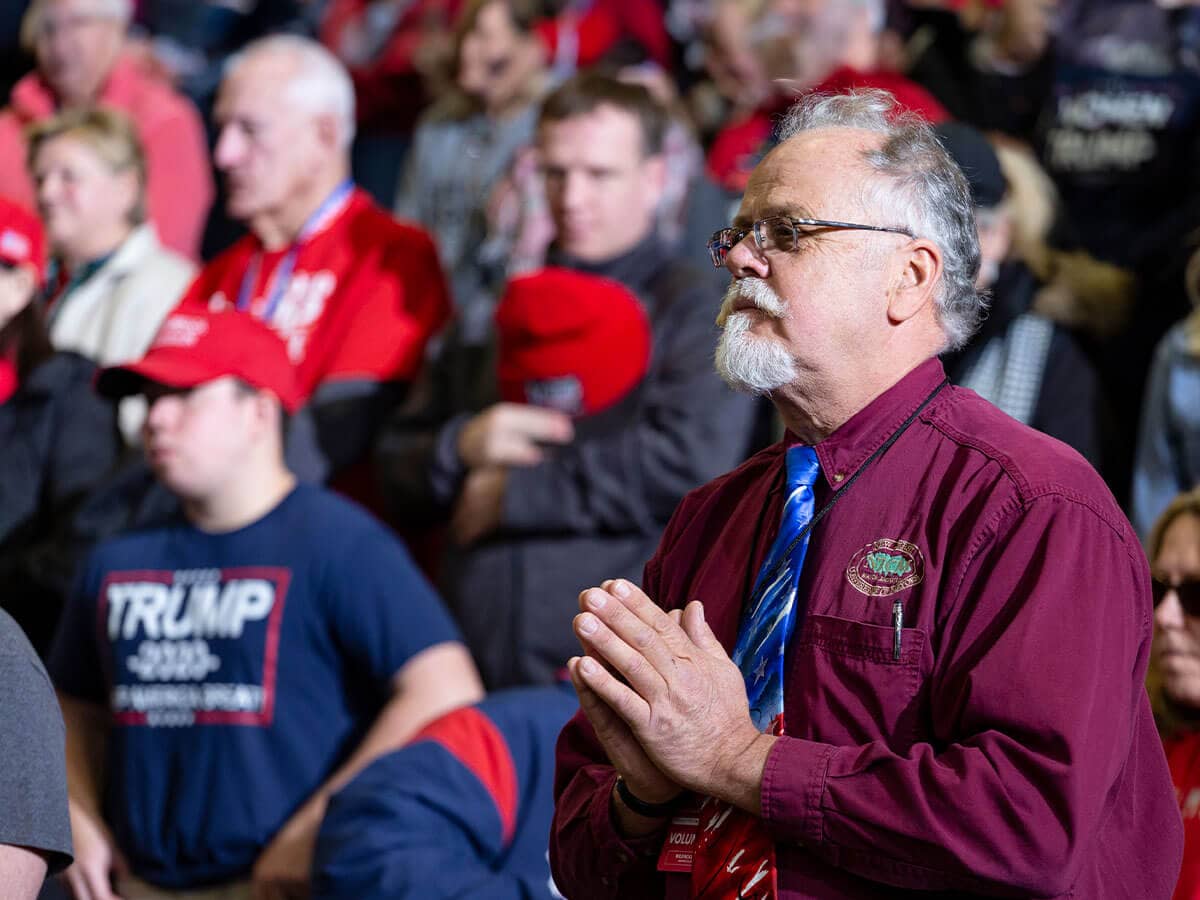Many of the troops may not be weighed down by these issues, but there's one group on the front lines whose job dictates that they confront and settle the debate, at least for themselves--the chaplains.
The men and women of the chaplain service have been part of the U.S. military since colonial times. And although they're non-combatants, they often can be found in the same foxholes with those fighting the wars.
But does their presence on the battlefield indicate that they condone war, or are they simply doing the job they were hired to do? "I'm not a pacifist," said Capt. Alan Baker, is a Navy chaplain on the aircraft carrier Harry S. Truman . "I think that there's a specific reason why there's a military. And I would love to see no wars. I would love to see that there would be peace. And my goal is to support those that have to go into war, whether they are religious or not religious."
According to Rabbi Joel Newman, one of 30 Jewish chaplains in U.S. military, there's a historical precedent for chaplains supporting military action, when necessary. "The priests would travel with the Israelites back in biblical times," Newman said. "And there was a always a chaplain, so to speak, that was with them. And it's been through the ages that there's been a blend of the two. And sometimes it's necessary to defend your human rights. Judaism never speaks against defense and it never says that you can't defend yourself, all of the way back to the earliest tenets. So ... it would transfer easily to what they're doing today. It's not an issue."
But even though some may support military action, that doesn't mean they're about to pick up a gun and try to kill the enemy. That's not their job. "I'm not a line officer, I'm a chaplain," Capt Baker said. "We have 90 percent of the entire military focused on delivering ordinates on target. Chaplains are focused on the people who have to work in that system and work in that process and care for those individuals and help them with moral dilemmas."
Maj. J. Maddox Woodbery, a chaplain who just came back from performing that service in Afghanistan, said, "We provide for the personal delivery of religious support. Now, what that means is that we go where soldiers are."
"They won't have a priest if they're at sea," said Rob Coyle, a Roman Catholic priest who leads daily mass on the Truman . "They won't have a minister or rabbi if they're at sea. So we're here to provide that spiritual service."
But the spiritual counsel they provide is not just for our troops. Abuhena Saifulislam, a native of Bangladesh, is one of 14 Muslim chaplains in the U.S. military. Usually, he's stationed at Norfolk Naval base, but until recently, Saifulislam ministered to another congregation--suspected Al Qaeda and Taliban detainees at Guantanamo Bay.
"It was eye-opening for them: Me, a Muslim, calling them to pray," Saifulislam said. "The person who was one day was friendly and, you know, very nice to me but next day was probably angry and sometimes they started shouting at me. And some days they thought that I am the enemy within, kind of."
But often during the more than 200 years that chaplains have served in the U.S. armed forces, they have been in far more hostile circumstances. Chaplains have served in every major American battle. And in Vietnam and Korea, many were either held as prisoners of war or killed.
But even though they often face the same dangers as any other troops in the armed forces, does their devotion to a higher power alleviate or at least lessen their fear? And if not, could that be considered a failure of faith on their part? "I can be scared to death, but God's got a plan and God loves me," Capt. Baker said. "And whether my time to meet my maker is now or later, I feel like I'm in the place where he wants me to be right now. And so that gives me the strength to minister to others."

